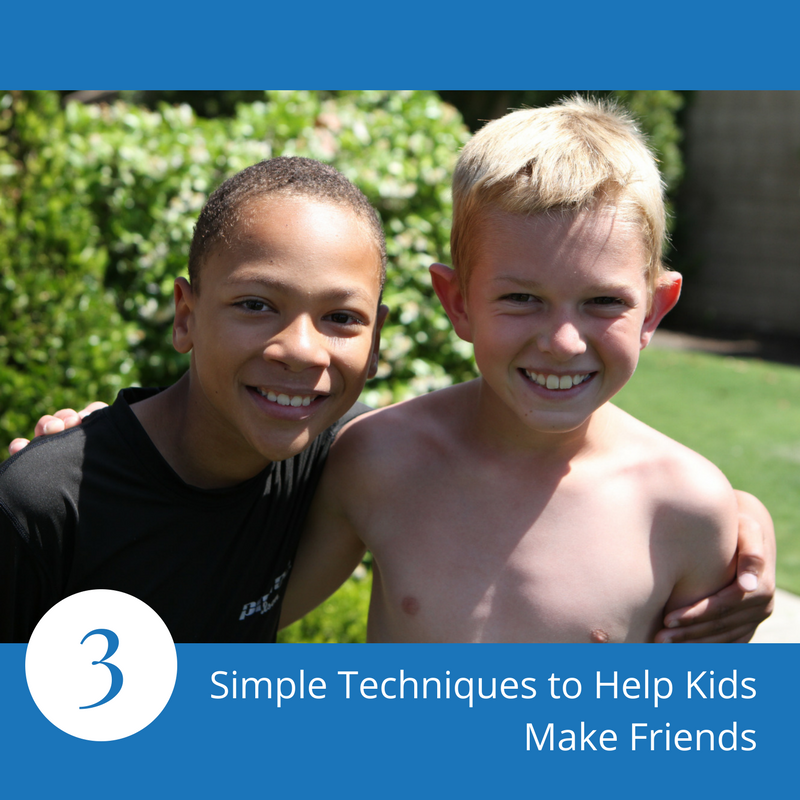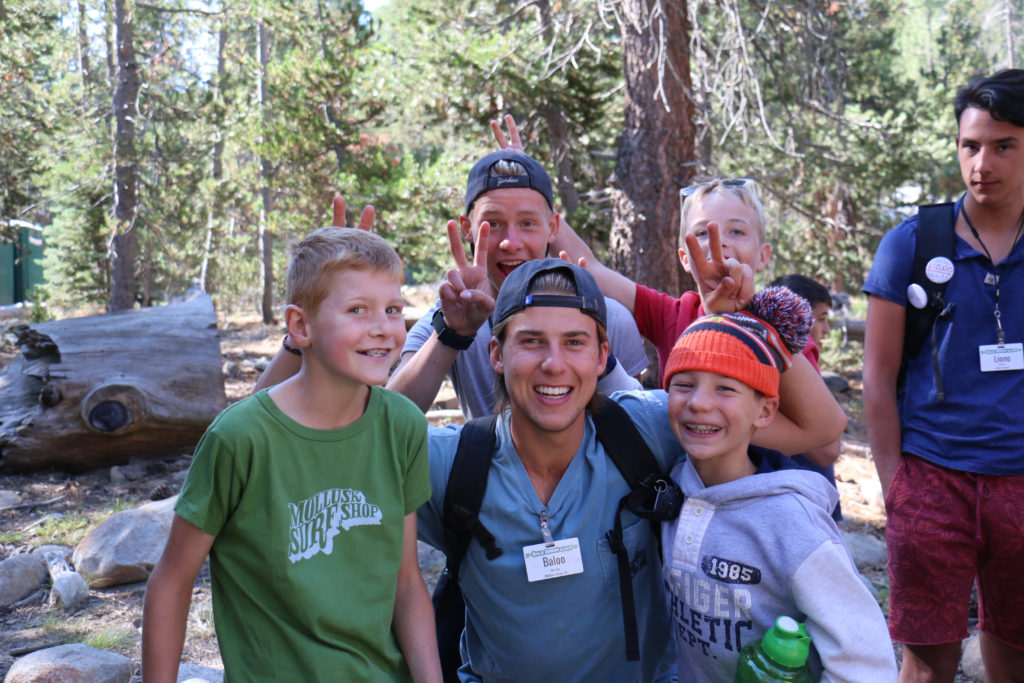3 Simple Techniques to Help Kids Make Friends

Coaching kids on their social skills is one of the most helpful things caring adults can do to positively impact children’s lives.
Why are social skills so important?
We need look no further than the 75-Year Harvard Study (and our own life experience) to know that it is NOT what college our kids attend or how good they are at sports that will lead to a flourishing adult life.
Instead, it is the quality of their relationships that will best predict our children’s future health and happiness.

And what best predicts the quality of relationships? Yep, you guessed it. Social skills!
Children and teen’s friendships are where they practice the relational skills they will use throughout their lives.
Many basic social skills do not come naturally to children or adults. Some people present themselves awkwardly or lack the skills required to meet new people.
Because of my research on the importance of good social skills, I now focus much of my work on training parents and camp counselors to be friendship skills coaches. I’m also spending more time with our campers training them on the basic social skills they need, like introducing themselves to others.
I’ve learned that once we decide on the skill we’re teaching, coaching can be broken down into simple steps. And, just like kids need to practice their skills to improve in a specific sport, social skills need to be practiced regularly as well.

You may have a socially adept child who has intuitively picked up great social skills by watching you or their peers. But there are many kids who need some extra parental support in this area.
Following are some tips on how to coach your child about three communication skills that will help them make and keep friends.
Which of these skills — Questioning, Sharing, or Extending Invitations — does your child need some assistance with? Pick one and try coaching them on how they can improve in that specific area. Each of these skills can help your child foster better friendships.

3 Communication Skills that Foster Friendships:
# 1 Questioning
People’s favorite topic to talk about is themselves. So, it’s no surprise that asking questions helps you make friends.
- Step 1: Ask, “What do people most like to talk about?” When we posed this question to our boys, they mentioned “hobbies” and some specific games and movies that are currently popular.
- Step 2: Share with your child that people’s favorite thing to talk about is themselves.
- Step 3: Brainstorm questions you can ask people about themselves. Write some down.
- Step 4: Role play a discussion, taking turns being the one asking questions and the one answering.
- Step 5: Have them practice on someone at school and report back to you how it goes. Remind them to use questioning when opportunities come up for talking with other kids.
# 2 Sharing
How we share information about ourselves can either attract or repel people.
- Step 1: Ask, “Think about someone you like a lot. When they share information about themselves, how do they say it?” Discuss different ways people can share things about themselves and the words that come to mind, like “humble,” “proud,” “bragging,” and “know-it-all.”
- Step 2: Ask, “What do you like to share about yourself?” Talk about hobbies, interests, and other things they’re proud of and like to talk about with friends.
- Step 3: Brainstorm ways to share information that don’t sound arrogant. Talk about tone of voice and the words used.
- Step 4: Role play a discussion by asking them questions and having them share about themselves. Assess how they sound and gently coach if they come off in a “repel” kind of way. You can say, “I could tell how much you like Star Wars, but when you insisted that I had the wrong name for the Wookie, it made me feel bad. How else could you have shared that?”
- Step 5: Keep practicing! And remind them about communication skill #1 and how it’s important to balance conversations with sharing and questioning so that they’re not always talking about themselves.
# 3 Extending Invitations
This kind of extending invitations does not refer to your child’s annual birthday party. Every day, we have opportunities to extend invitations to other people. For kids, invitations are things like, “Would you like to sit with me at lunch today?” and “Want to play basketball during recess?”
- Step 1: Ask, “What are different things kids have invited you to do that make you feel included?”
- Step 2: Brainstorm a list of different invitations your child could extend to other kids.
- Step 3: Role play making a casual invitation that sounds friendly, not too formal. Include how to gracefully respond when someone declines. And, let your child know that it’s okay for people to decline an invitation. Kids with social skills deficits often view the rejection of an invitation as “bullying,” but it’s important to be aware that kids may, for many different reasons, just not feel like doing or playing what your child is inviting them to do. And that’s okay.
- Step 4: Have them take this invitation skill out into the world and report back to you how their invitations are going and if they are engaging more with other kids.
Enjoy coaching your child to better communication skills and other social skills that can help them make and keep friends!
Resources/Related Articles:
Making Friends: Managing Difficult Emotions
Making Friends: Developing Emotional Intelligence
Friends: Finding Gold in a Plastic Era
7 Simple Steps to Teach Kids to Introduce Themselves
How Children Make Friends: Part 1 (Psychology Today)
Helping your Child Make New Friends (PBS)
Kids who need a little help to make friends
How to Help Kids Make Friends (Parenting Science)
Helping Children Make Friends (Education.com)

